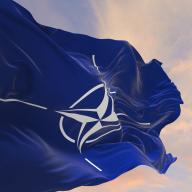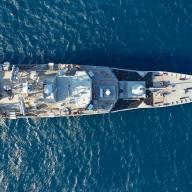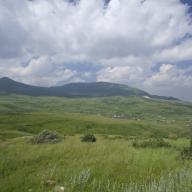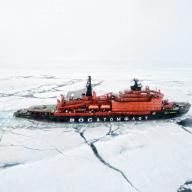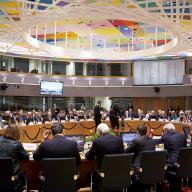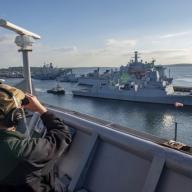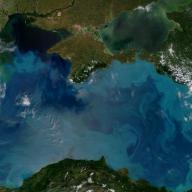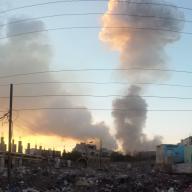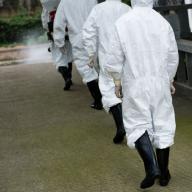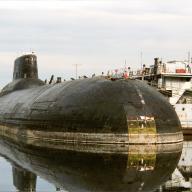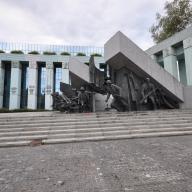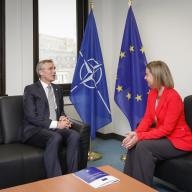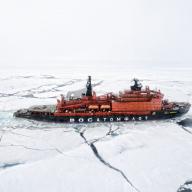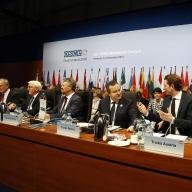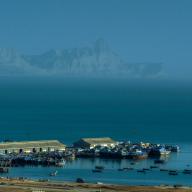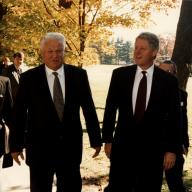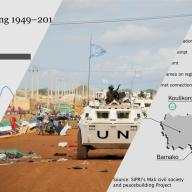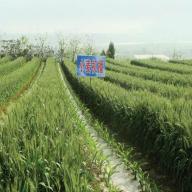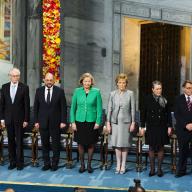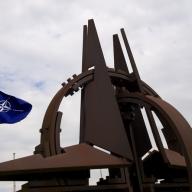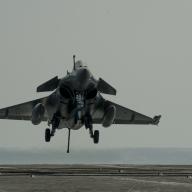As undersea cables and pipelines become apparent targets of hybrid warfare, a Law of the Sea expert explains how coastal states can better protect them and remove legal barriers to interdicting and prosecuting the ships suspected of being involved.
Related commentary: Europe
Maritime disputes in the eastern Mediterranean: Why and why now?
In August 2020, Greek and Turkish frigates collided in the eastern Mediterranean. The Turkish ship had been escorting a Turkish seismic survey vessel, RV MTA Oruç Reis. The activities of the Oruç Reis, mapping for potential future oil and gas resources in waters disputed by Greece and Turkey, have been a cause of diplomatic and military tension.
Escalating violence in Nagorno-Karabakh: Local solutions offer the main hope
While details remain scarce, the fighting that has erupted between Armenia and Azerbaijan appears to be more intense than the skirmishes that killed at least a dozen people in the summer of 2020. At the time of writing, roughly 100 people, both civilians and military personnel, have been killed since Sunday, and fighting continues.
Russia’s new Arctic policy document signals continuity rather than change
On 6 March 2020, Russian President Vladimir Putin approved the ‘Basic Principles of Russian Federation State Policy in the Arctic to 2035’ (Basic Principles 2035). The new policy document defines Russia’s Arctic interests, goals and mechanisms of implementation for the next 15 years. The document is published at a time where tensions between Russia and its Arctic neighbours are increasing and just ahead of Russia chairing the Arctic Council in 2021.
European Union–Eastern Partnership relations: Future opportunities
In 2019, when the European Union (EU) and six countries to the east of the EU (Armenia, Azerbaijan, Belarus, Georgia, Moldova and Ukraine) marked the 10th anniversary of their Eastern Partnership (EaP), foreign ministers underlined common work on trade, visa liberalization, economic development and human rights that had been encouraged by (or through) the partnership.
Reducing the risk of naval incidents
This month, 18 countries are participating in a North Atlantic Treaty Organization (NATO) naval exercise in the Baltic Sea. The Baltic Operations (BALTOPS) exercise is noteworthy because it will be led by the 2nd Fleet of the United States Navy, which was disbanded in 2011 but reconstituted in 2018 with a wide area of operations from the east coast of the USA to the Barents Sea.
Key actions to reduce nuclear security risk in the Black Sea region
The wider Black Sea region contains both a high degree of nuclear security risk and rich experience in efforts to cooperate on risk reduction. Given that some of the most significant known cases of illicit nuclear trafficking have taken place in the wider Black Sea region, it is important to understand whether recent events, including the conflict in and around Ukraine, have increased existing nuclear security risks or created new ones.
The conflict in Yemen and EU’s arms export controls: Highlighting the flaws in the current regime
Under the 1998 EU Code of Conduct on Arms Export, which was replaced in 2008 by the EU Common Position on Arms Exports, member states of the European Union have committed themselves to achieving ‘high common standards’ and ‘convergence’ in their arms export controls.
The forgotten science of cooperative threat reduction
The announcement that Russia had completed the destruction of its chemical weapons stockpile was rightly applauded as a milestone in multilateral arms control. However, it was also a reminder of the significant part that international non-proliferation and disarmament assistance played in facilitating the implementation of the 1993 Chemical Weapons Convention (CWC).
European security. Crisis? What crisis?
The tone of this year’s Munich Security Conference was captured by the Munich Security Report’s theme: ‘Boundless chaos, reckless spoilers, helpless guardians.’
Cities and security
Terrorist attacks in Ankara, Beirut and Paris have triggered tremendous shock and sorrow, but also anxiety and insecurity in other cities in Europe and beyond.
Damage limitation for Vienna document
Last week, Nato's secretary-general Jens Stoltenberg launched the idea of reworking the Vienna Document on Confidence and Security Building Measures.
Small arms control in Europe: time for an integrated strategy
Although small arms control has been an issue on the humanitarian arms control agenda for a long time, small arms manufacturers and civilian consumers have enjoyed a relatively liberal market in large parts of the world. In Europe and the United States, for example, the guiding principle has been to remove barriers for law-abiding adults in good mental health to access weapons for cultural, recreational or self-defence purposes. One could argue that the same principle has been adopted for international transfers of small arms.
Russia and the Arctic: an end to cooperation?
The recent increase in Russia’s military activities in the Arctic have raised concerns over whether the Arctic can continue to be a ‘zone of peace and cooperation’ in the foreseeable future.
Death of the CFE Treaty: The need to move arms control back to the centre of security policy
Russia's termination of its participation in the 1990 Treaty on Conventional Armed Forces in Europe (CFE Treaty) is a blow to the integrated system of arms control and confidence- and security-building measures that was put in place to reduce the risk of major armed conflict, even if its practical impact is limited.
Russia as a strategic challenge for the European Union
The current pattern of Russian behaviour has been labelled inconsistent with the norms, values and laws that make up the European security order—to the point where EU leaders stress that relations with Russia cannot be ‘business as usual’.
The European Union’s response to the terrorist attacks in Paris: combining targeted and comprehensive approaches
In the wake of the attack on the French satirical magazine Charlie Hebdo in Paris in January 2015, the European Union and its member states face growing public calls to address internal and external threats, and particularly terrorism. The EU, through its High Representative, should promote political dialogue on comprehensive approaches to conflict and crisis prevention, which can deal with both the symptoms and the causes of these threats.
The effect of firearm laws on firearm manufacturing location
Desipte firearms being present is nearly every major conflict today, relatively little is known about the firearm industry.
Returning to a basic level of trust in relations between Russia and the West
While the threat of nuclear war during the cold war era was all too real, in one sense the world is worse off now: even the notion of rebuilding trust on the basis of international commitments is seen as idealistic and unrealistic.
Nuclear power and the European Energy Security Strategy
Momentum is building for a new, common approach to energy within the European Union (EU) that balances the need for competitive pricing against security of supply and the need to reduce carbon emissions.
Reducing risks arising from developments in Ukraine: the role of confidence- and security-building measures
The main role of the arms control agreements reached in Europe in the 1990s—along with associated politically binding confidence- and security-building measures (CSBMs)—is to ensure predictability in military behaviour and promote confidence that armed forces exist only for legitimate defensive purposes. Concern has been expressed about whether they still play that role.
Interdependence, not sovereignty, is the key to the development of Russia’s Arctic region
Although strengthening Russia's engagement in the Arctic may be a key building block in the development of the region, an over-emphasis on sovereignty issues risks overlooking the importance of economic and strategic developments beyond the region.
A more inclusive Arctic Council faces new challenges
The Arctic Council's ministerial meeting in Kiruna, Sweden, this week highlighted the global interest in the Arctic region. The fact that six non-Arctic states (China, India, Italy, Japan, Republic of Korea and Singapore) were granted permanent observer status indicates an opening up of the Council to the world and signifies a breakthrough that rejects ideas of Arctic isolationism.
Apr. 13: The global market in natural uranium—from proliferation risk to non-proliferation opportunity
Making nuclear weapons requires access to materials—highly enriched uranium or plutonium—that do not exist in nature in a weapons-usable form. To constitute a threat, natural uranium needs to go through a challenging and time-consuming process of transformation as it moves through the nuclear fuel cycle.
Arctic cooperation must become more inclusive
July 2011 saw the lowest extent of Arctic sea ice for that month since satellite measurements began in 1979. An increasingly accessible Arctic, and the economic and other potential benefits it offers, has sparked new interest in the region, not only among those states with territory in the Arctic but also among a range of non-Arctic states and organizations. To date, the Arctic states have sought to deal with Arctic matters among themselves, while keeping non-Arctic countries and organizations at arm’s length.
The European security architecture two decades after the fall of the Berlin Wall: can Russia be integrated?
Twenty years after the end of the cold war, the need for a sincere and critical effort to review the European security architecture is increasingly recognized on both sides of the Atlantic.
The role of deterrence in future NATO strategy
Prior to the recent meeting of NATO foreign ministers in Tallinn, the NATO Secretary General Anders Fogh Rasmussen said that the alliance continues to need a credible nuclear deterrent for ‘as long as there are rogue regimes or terrorist groupings that may pose a nuclear threat to us’. The most recent report from the NATO Parliamentary Assembly also noted that both deterrence and the concept of extended deterrence still play a fundamental role in ensuring stability and preventing conflict in the Euro-Atlantic region.
Coming tests for transatlantic security relations
A renewed atmosphere of friendship and willingness to cooperate is apparent in relations between Europe and the United States. US Vice-President Joe Biden, in his speech at the 2009 Munich Security Conference, set out the USA’s position: ‘We will engage. We will listen. We will consult.



